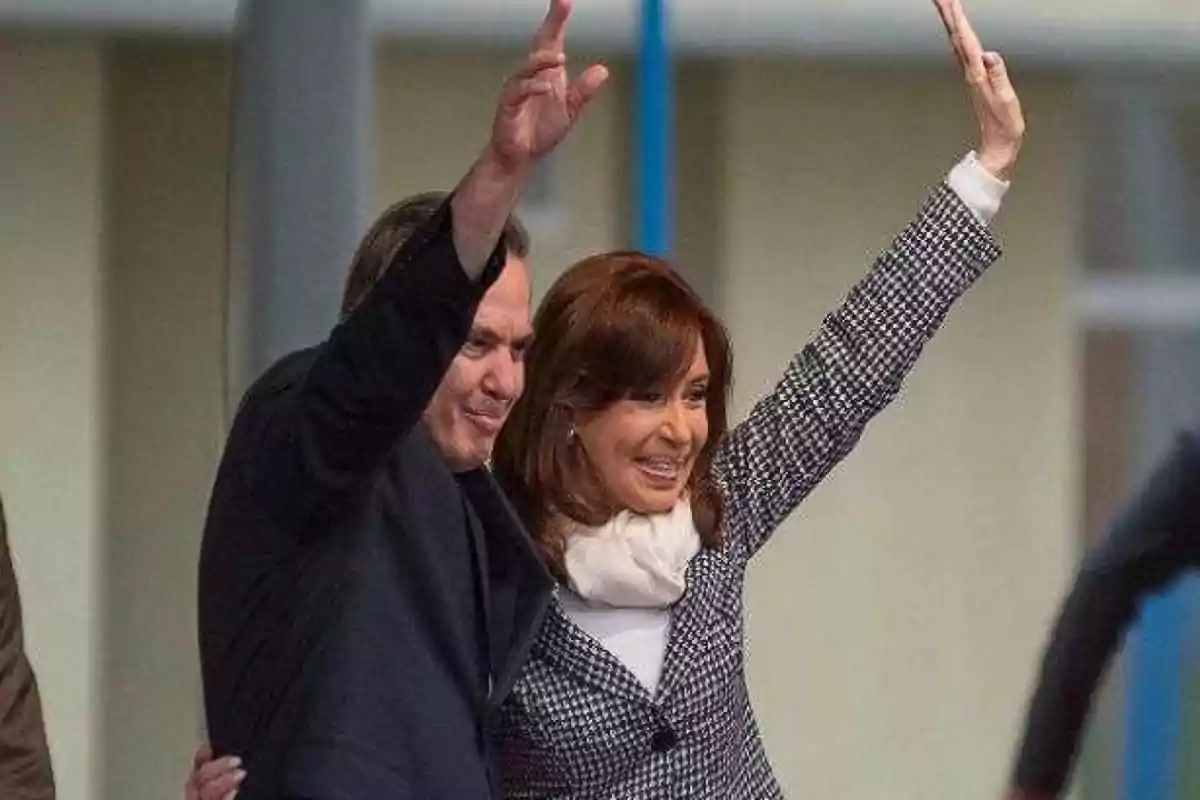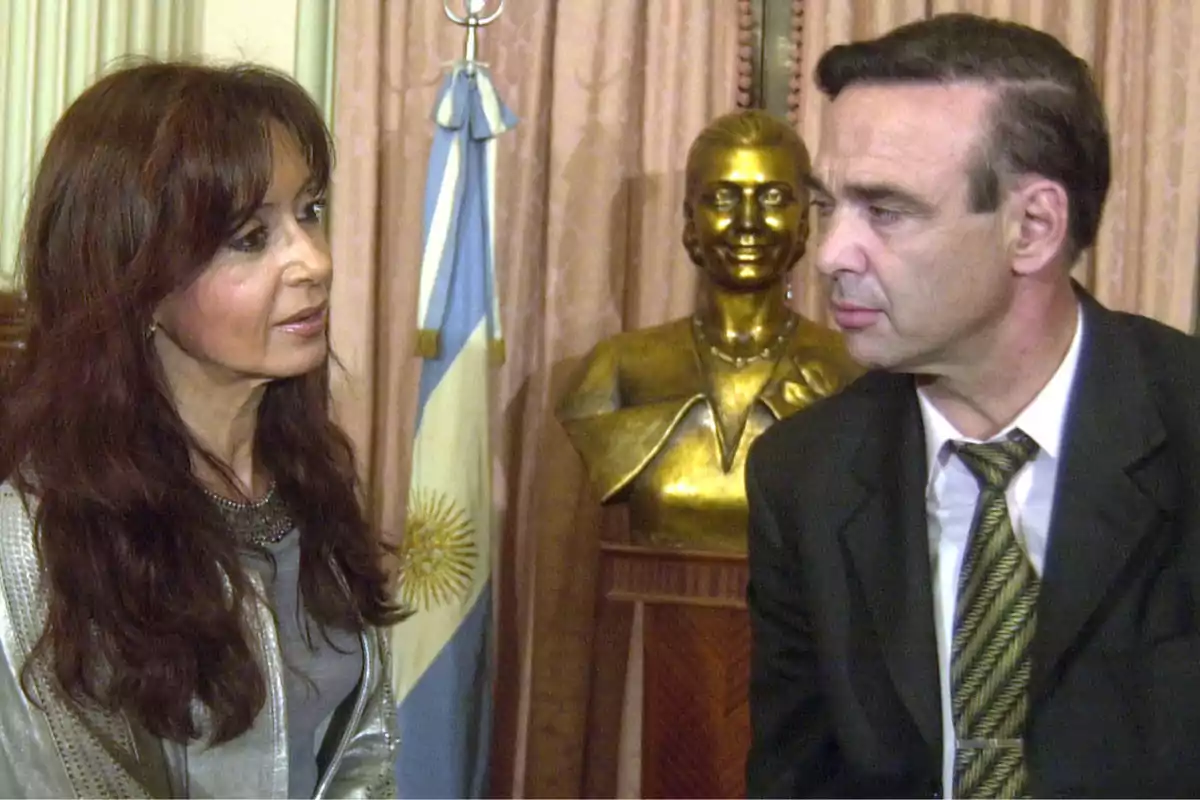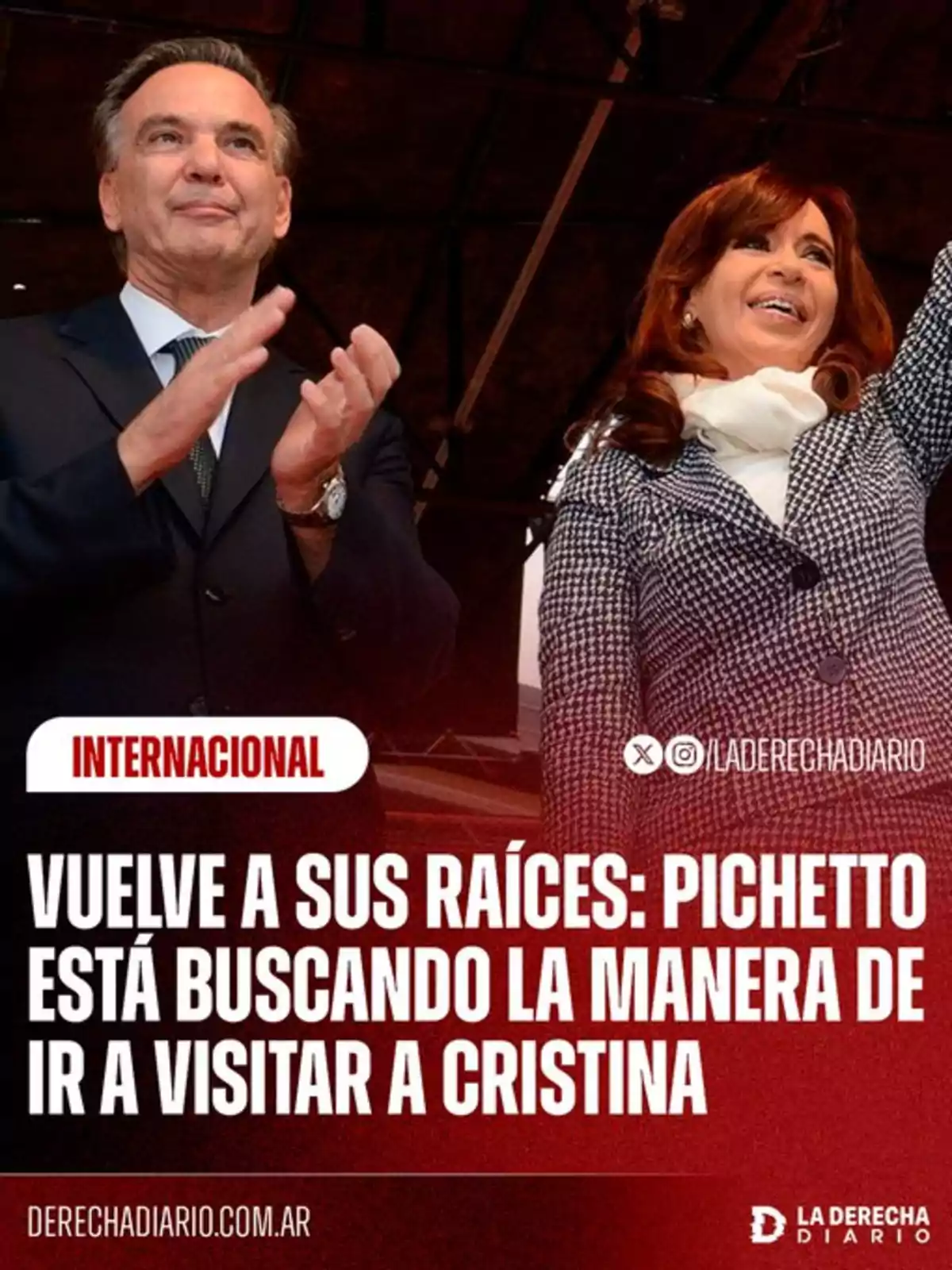
Pichetto requested authorization to visit Cristina Kirchner under house arrest.
Miguel Ángel Pichetto covered up for the corrupt Cristina Kirchner and protected her parliamentary immunity for more than a decade
Old politics once again reveals its most decadent face. Instead of supporting the course of change that society chose, figures entrenched in power prefer to surrender to the past. This was demonstrated by Miguel Ángel Pichetto, head of the Encuentro Federal bloc, who requested judicial authorization to visit Cristina Fernández de Kirchner under house arrest. This information was revealed by journalist Carlos Pagni and caused immediate repercussions in both parliamentary and judicial spheres.
Pichetto's request is part of a series of public statements in which he questioned the ruling in the Vialidad case, which sentenced the former president to six years in prison and perpetual disqualification from holding public office. The congressman argued that the judicial decision, confirmed by the Federal Oral Court No. 2 and ratified by the Supreme Court, contains inconsistencies in the proportionality of the sentences.
Carlos Pagni reveló que Miguel Ángel Pichetto, jefe del bloque Encuentro Federal, pidió autorización para visitar a la corrupta Cristina Kirchner en su prisión domiciliaria.
According to his explanation, "there is no proportional relationship between the 6 years in prison and the perpetual disqualification imposed on CFK". In his argument, he detailed that the disqualification from holding public office "is a complementary penalty and can't be higher than the custodial sentence."
Pichetto insisted that the sentence must be analyzed not only in legal terms but also in political terms. "It is a political issue," he emphasized in radio statements. In his view, the ruling reflects a situation in which "the strongest, most forceful leadership, even in decline, which is that of Peronism, is imprisoned." The legislator also suggested that, although the internal judicial path is exhausted after the Supreme Court's decision, "there may be some path toward the Inter-American system" to review the sentence.

The debate over the Vialidad case was also reignited days ago by Judge María Romilda Servini, who described the sentence as "conflictive" and considered that it is more likely that "a political solution will be found before a legal one" in the case of the corrupt former president.
Meanwhile, Pichetto warned that Cristina Kirchner's judicial situation affects parliamentary dynamics. "This also hardens the terms of the relationship in Congress," he pointed out. According to his analysis, since the former president was detained, "the level of conflict and confrontation from Unión por la Patria's deputies has increased."

In dialogue with the media, the head of Encuentro Federal expanded his criticism and questioned the national government for the lack of responses to various social demands. He pointed out that there has been no progress regarding pensions, university education, and the crisis faced by doctors at Garrahan Hospital.
"The government is involved in a dispute that makes no sense," said Pichetto, who added that it would be necessary to "open the heart a little and analyze the issues with greater political intelligence" to find reasonable solutions.
He also criticized the relationship between the Executive Branch and Parliament: "There has never been good treatment toward Congress," he claimed to be a victim. In this regard, he demanded that the ruling party measure the impact of new economic measures and seek consensus to avoid greater tensions.
More posts: